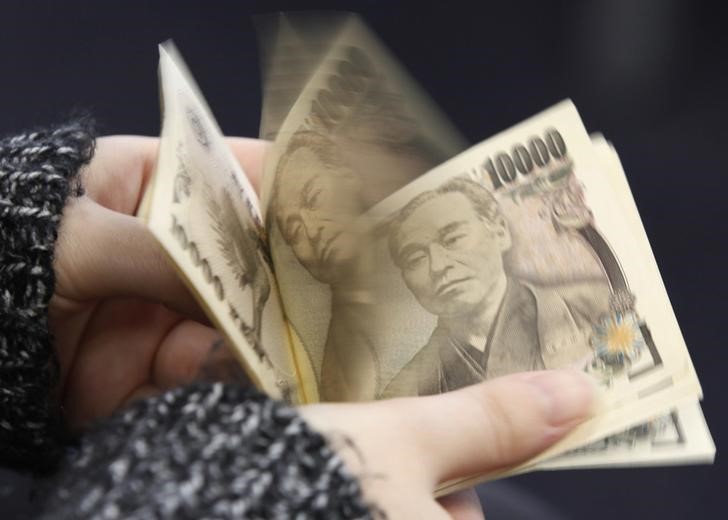Bitcoin price today: gains to $120k, near record high on U.S. regulatory cheer
Investing.com-- Asian currencies extended gains on Friday as the U.S. dollar held near six-month lows, pressured by mounting fears that President Donald Trump’s sweeping tariffs could push the global economy toward a recession.
Asian currencies closed higher on Thursday, after falling initially on Trump tariffs announcement.
Dollar drops on recession fears after Trump tariffs
The US Dollar Index, which measures the greenback against a basket of major currencies, fell 0.4% in Asian trade on Friday after plunging nearly 2% to a six-month low on Thursday.
The moves came after President Trump on Wednesday announced a universal 10% tariff on all imports, alongside steep country-specific levies, reaching up to 54% on Chinese goods.
The aggressive trade measures sparked a sharp selloff in U.S. equities, with major indices posting their worst session in months. Investors scrambled toward safe-haven assets, driving down U.S. Treasury yields and weighing on the dollar.
Market participants fear that the trade escalation could curb corporate investment, slow global growth, and increase inflationary pressures.
“The blowback of US tariffs onto the US domestic economy leaves the dollar naked. US rates continue to be marked lower, and not until we get some surprisingly good news from the US on tax cuts or deregulation may the dollar start to find some support,” ING analysts said in a note.
Japanese yen near 6-mth high, Chinese yuan gains
The Japanese yen’s USD/JPY fell 0.5% on Friday after jumping 2% to a six-month low in the previous session.
The Chinese yuan’s offshore USD/CNH pair was down 0.4%. Onshore markets were closed for a public holiday.
The South Korean won’s USD/KRW pair fell 0.9%.
The Singapore dollar’s USD/SGD pair was largely unchanged, while the Taiwanese dollar’s USD/TWD lost 0.5%.
The Indian rupee’s USD/INR pair declined 0.4%.
Aussie dollar slips as RBA rate-cut bets increase after Trump tariffs
The Australian dollar’s AUD/USD pair dropped 1.5% on Friday.
Traders ramped up bets that the Reserve Bank of Australia (RBA) could cut interest rates in the near term, following a sharp escalation in U.S. trade tariffs that stoked fears of a global economic slowdown.
Investors worried that Trump’s sweeping tariffs, including a hefty total duty on Chinese imports, could weigh on global demand, particularly impacting Australia’s key exports such as iron ore and coal.
